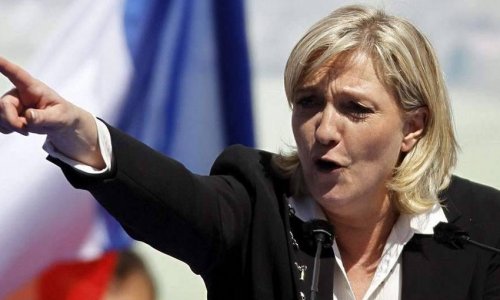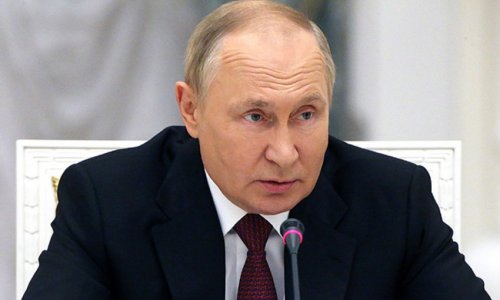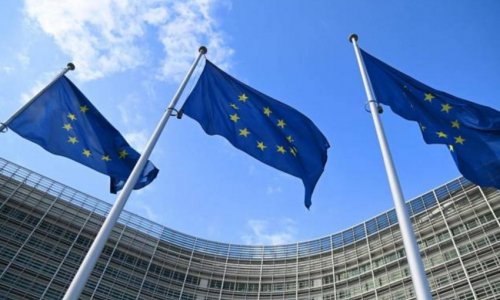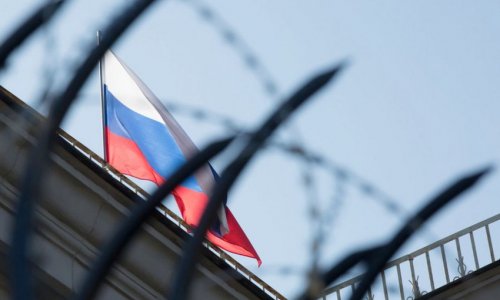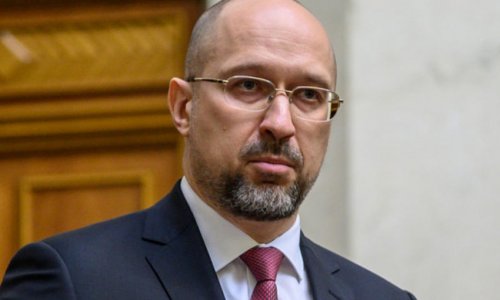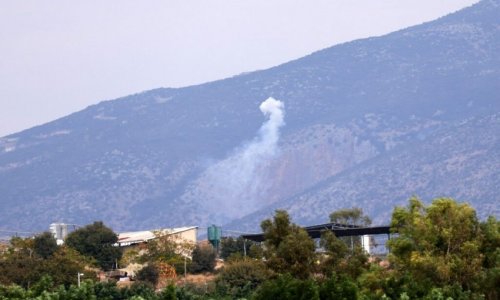The standoff between Ukrainian and pro-Russian forces continues as global leaders push for a diplomatic solution to the conflict in Ukraine. On Tuesday, Russian President Vladimir Putin ordered troops near Ukraine's border to return to their bases as the US secretary of state, John Kerry, visited Kiev.The latest developments are the result of a four-month-long deadlock between Ukrainian demonstrators and Viktor Yanukovych's government. Protests erupted on 21 November 2013 when then-president Yanukovich backtracked on promises made to sign a trade deal with the EU, allegedly at Moscow's behest. Though protests, set off by the pivot toward Russia, were initially peaceful, things turned violent in January when police tried to break up demonstrations in a violent crackdown. Dozens died before a European-brokered peace deal ended the fighting, but as violence began again, Yanukovych disappeared. He has since surfaced in Russia, claiming to be the legitimate ruler of his country.Ukraine's parliament has largely taken over, and named an interim president, Olexandr Turchynov, started to set up a new government and called May elections. Then, as pro-Russian protests and armed bands of men started appearing in eastern Ukraine, accusations started flying of a slow-motion invasion by Russia – which has professed innocence and an interest only in protecting ethnic Russians from dangerous factions. Now the EU and US are throwing down threats of sanctions, and Russia's representatives are meeting behind closed doors with western diplomats.How exactly did Ukraine get here?We look back at the major developments in the country's recent history to get you up to speed with events on the ground today• Cracking the USSR: In 1991, as the collapsing USSR dissolved its hold on Soviet republics, Ukraine achieved independence, and three years later, Russia, the US, Britain and Ukraine signed the Budapest Memorandum – part of the negotiations aimed at keeping Soviet-era nuclear weapons from scattering to the winds. Ukraine agreed to send its nuclear weapons to Russia to be disarmed there, in return for the three powers' promises to respect Ukraine. Specifically, they agreed never to coerce Ukraine with economic pressure; to never threaten or use force against Ukraine; and to respect Ukrainian territory and sovereignty.• Ukraine by any other name: While on the subject of Ukrainian sovereignty, a brief aside about the country's name. Though it may seem trivial, many are angered by the addition of the article "the" to Ukraine, arguing that it undermines Ukrainian statehood. Theories of its etymology vary, but most are rooted in Ukraine's history of being on the peripheries of Russian power, as linguists suggest Ukraine derives from an Old Slavic word for "borderland." (For more on Ukraine, read this.)One map does not explain Ukraine: Ukraine is, like everywhere else, complicated. Forty-five million people live there, meaning it's got about the population of Texas and New York combined. Not only that, any division between ethnic groups, or language, or "ethno-linguistics" risks being oversimplified. While it's true that Ukrainian language dominates in Kiev and the west of the country and Russian is far more common in the east, most of the country is bilingual. It's not uncommon for two people – one speaking Ukrainian, the other Russian – to hold intelligible conversations using either language.Peter Pomerantsev at the London Review lays out the missing link, and explains why the country doesn't divide along language lines:"Ukraine's lingua franca is Surzhyk, a motley mix of Ukrainian and Russian (sometimes with bits of Hungarian, Romanian and Polish). … Now that Ukrainian is the official language, Russian-speaking officials sometimes have difficulty with it. Watching a session of the Ukrainian parliament can be like observing a secondary school foreign language class. … The big winner from the conceptual division of Ukraine into 'Russian' and 'Ukrainian' spheres may well be the Kremlin. The idea that Russia is a separate political and spiritual civilisation, one which is a priori undemocratic, suits the Kremlin as it looks to cut and paste together an excuse to validate its growing authoritarianism. So every time a commentator defines the battle in Kiev as Russian language v Ukrainian, a Kremlin spin doctor gets in another round of drinks. Yanukovych v Tymoshenko: In 2004, after a decade of government incompetence, corruption and a disastrous economy, the year's presidential elections would inevitably be close. Viktor Yushchenko, suffered a mysterious poisoning that left his face disfigured. Viktor Yanukovych claimed victory over his opponent, Viktor Yushchenko, in a run-off … until reports of fraud and rigged elections came in, prompting massive, peaceful street protests in Kiev, dubbed the Orange Revolution. The protests managed to get the original vote annulled, the nation's supreme court called a new election, and Yushchenko beat Yanukovych with 52% of the vote.As the years went on, though, hopes for reform were sidelined by continued corruption and economic problems, and Yushchenko's prime minister, Yulia Tymoshenko – of the elaborately braided hair– became her party's leading figure, and Yanukovych's personal nightmare. By the 2010 election, however, discontent with Yushchenko's failure to reform the economy – or strengthen ties with Europe – gave a boost to Tymoshenko's opponent: Viktor Yanukovych. When Yanukovych won the ballot, he promptly had Tymoshenko put in jail for allegedly abusing her power during a gas deal with Russia.• EU v Russia: Skipping ahead to November 2013, Ukraine is saddled with massive debt, endemic corruption and in dire need of assistance. The EU offers a trade deal to strengthen ties in the long-run, but only if Ukraine excepts painful conditions in the short-term. Russia offers a $15bn loan to be doled out over the course of several years, and makes overtures that Ukraine join a "Eurasian Union" – Vladimir Putin's alternative to the EU, which along with Russia will include human rights luminaries Kazakhstan and Belarus. Yanukovych hems and haws, until finally on 21 November, he ditches the EU and takes Putin up on that deal.Peaceful protests explode in Kiev, as protesters take over the city's main square and declare it EuroMaidan. They build tents, barricades and catapults, but peaceful protests continue through the next two months, despite several abortive attempts by police to break up the crowds. A former boxer, Vitali Klitschko, joins the opposition leaders, whose demands grow from partnering with the EU to government reforms to Yanukovych's resignation. Finally, on 22 January, clashes with police leave three dead, and the protests mount with increasing tension and bursts of violence.Mysterious groups – feared Berkut riot police, hired thugs called "titushki", far-right nationalist groups – become involved, and protesters take government buildings in Kiev and elsewhere. After a few uneasy truces, the dams break, and protesters fend off sustained nighttime assaults by the police. EU countries broker a truce agreement with Yanukovych, who reportedly calls Putin as his government loses control. Putin orders military exercises near the border. Yanukovych and his cohorts flee. Parliament impeaches him. An interim government is formed, with new elections slated for 25 May, and Tymoshenko is freed. Kiev's revolution ousts Yanukovych in two weeks.But hardly can the country start to recover than reports of pro-Russian protests emerge from the country's south-east. Russia, just like the US, has military bases on foreign soil, and existing agreements with Ukraine allowed Russia its biggest by the Black Sea. Russian forces begins moving around Ukraine, apparently both on legitimate terms of the military agreement and in violation of those terms. Crimea, a peninsula with many ethnic Russians, is suddenly full of Russian plated-trucks and aircraft, and its parliament and airport seized by men carrying Russian guns, denying that they're Russian. The Crimean parliament – presumably accompanied by men with guns – votes to hold a referendum on 25 May regarding the region's "autonomy".On 28 February, Yanukovych reappears in Russia, denouncing the "coup" and asking Putin to act decisively. The next day, Russia's parliament approves Putin's request to intervene militarily in Ukraine, to "protect the ethnic Russian minority". Ukrainian forces in Crimea refuse to surrender, though forces speaking Russian and armed with Russian arms surround their bases. Ukraine's interim president says Russia is trying to provoke Ukraine into war. The UN Security council calls emergency meetings, President Obama denounces Putin's actions and threatens sanctions and finally, 4 March, Putin breaks his silence and tells a press conference that military force is a last resort, Yanukovych has no political future and the chaos in Ukraine is in part due to rogue agents and western nations' interference.(theguardian.com)ANN.Az
Ukraine's revolution and Russia's occupation of Crimea: how we got here
World
20:45 | 06.03.2014
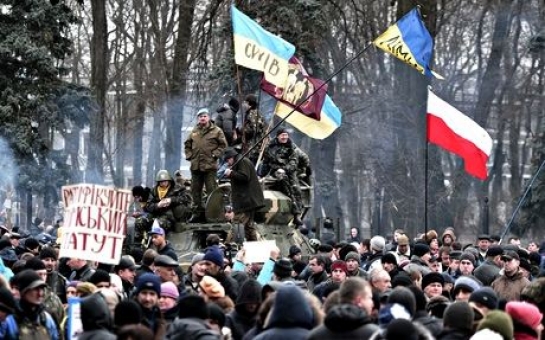
Ukraine's revolution and Russia's occupation of Crimea: how we got here
Recent history
Follow us !

